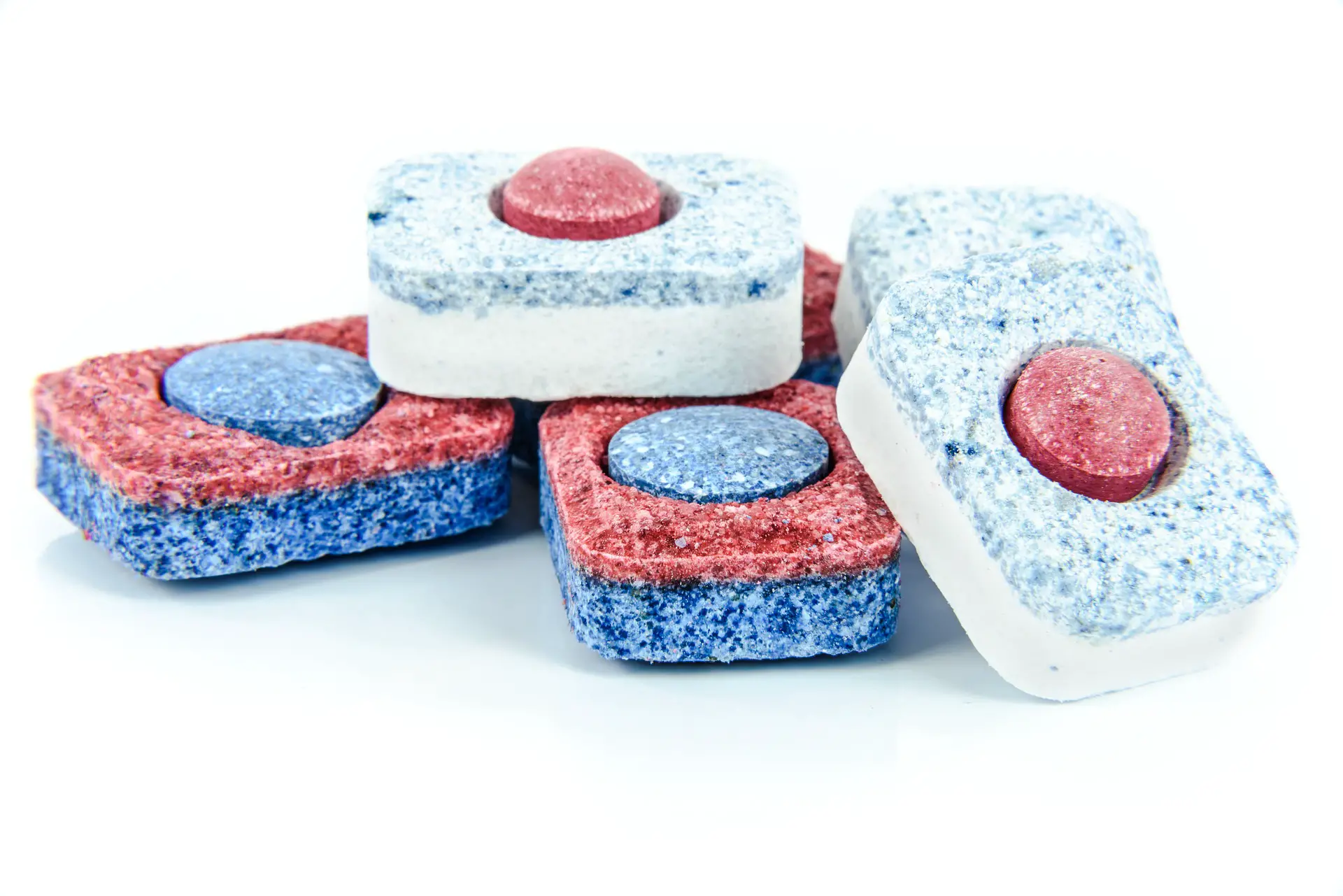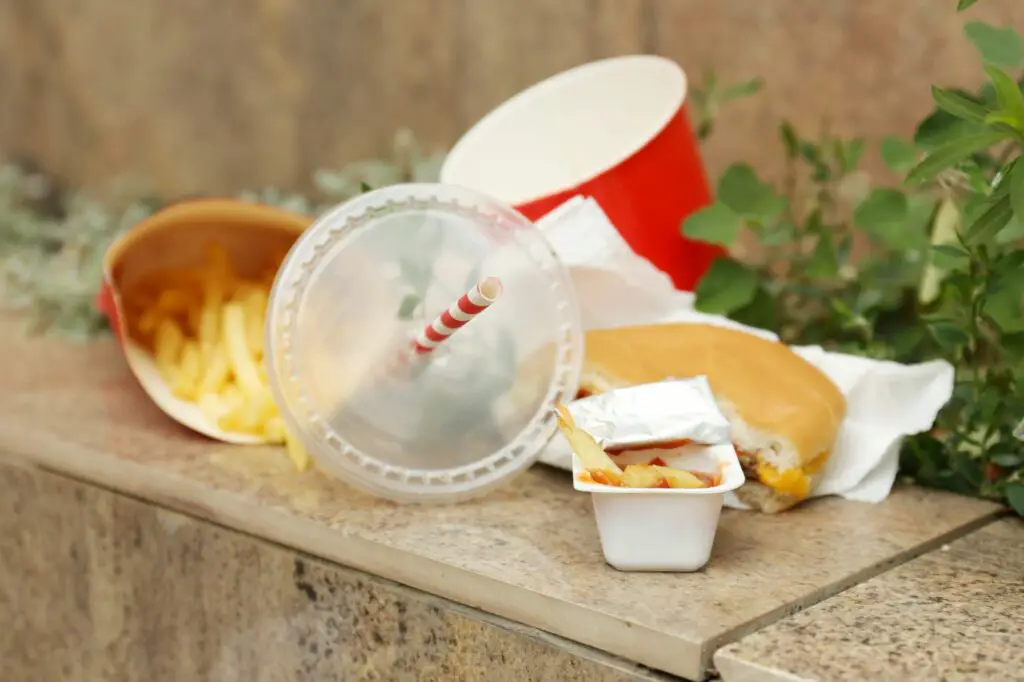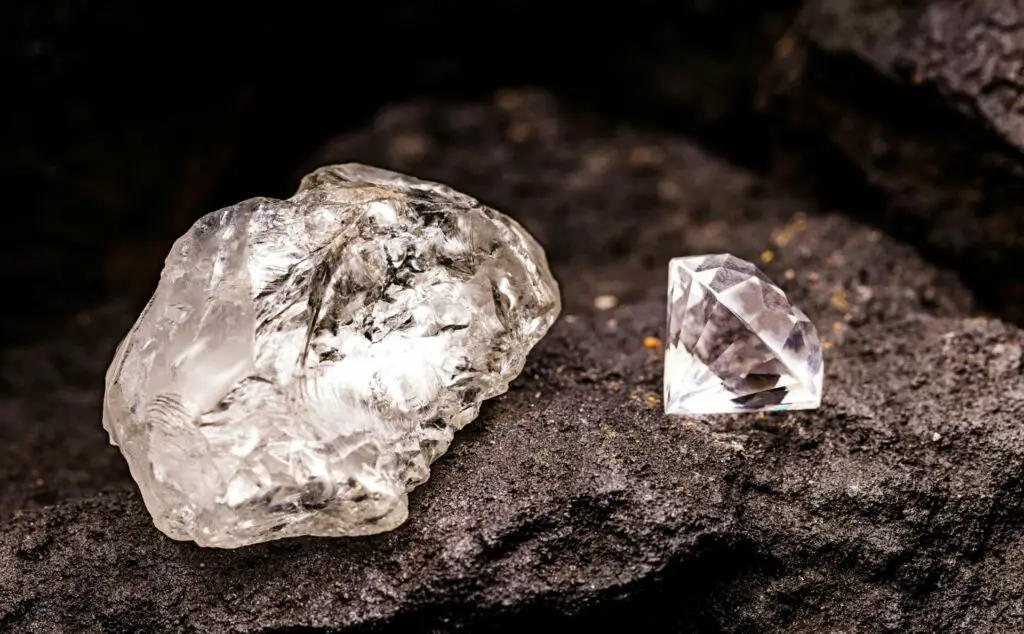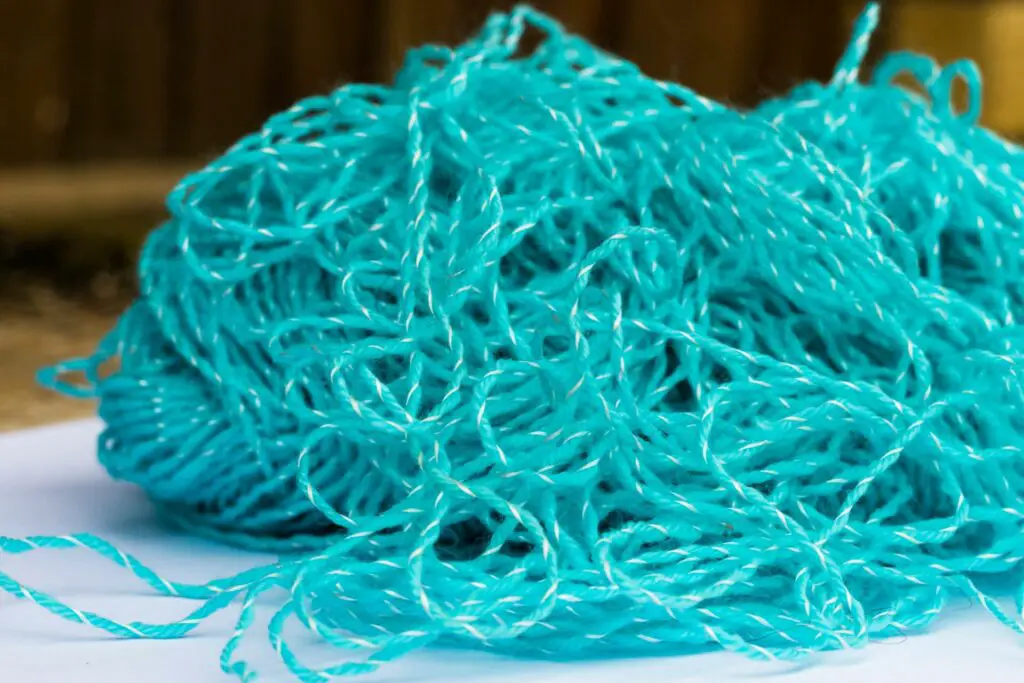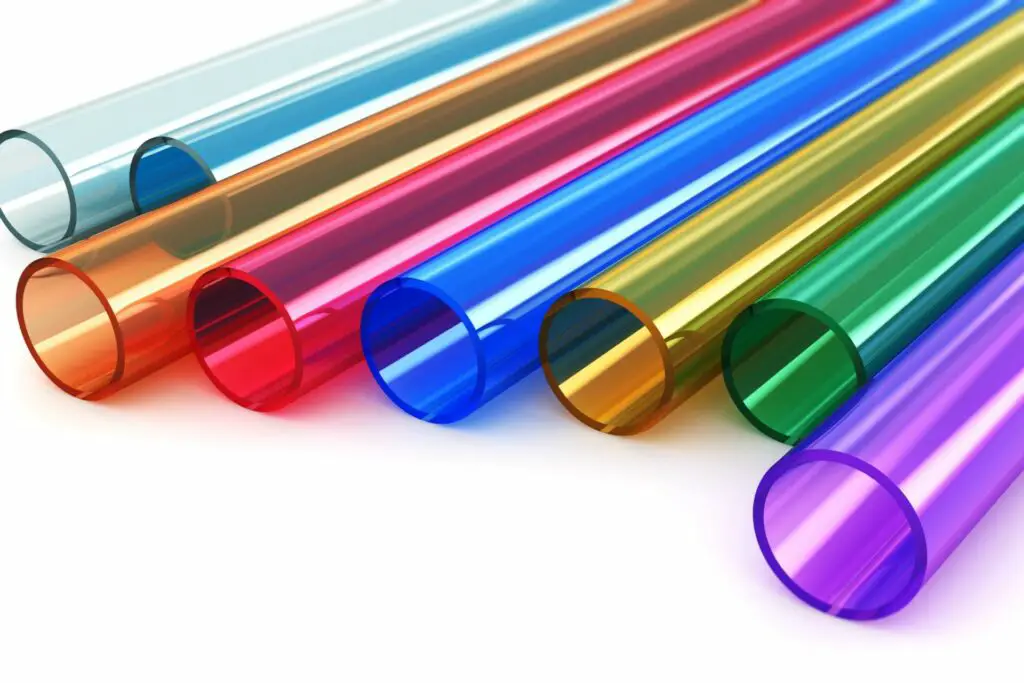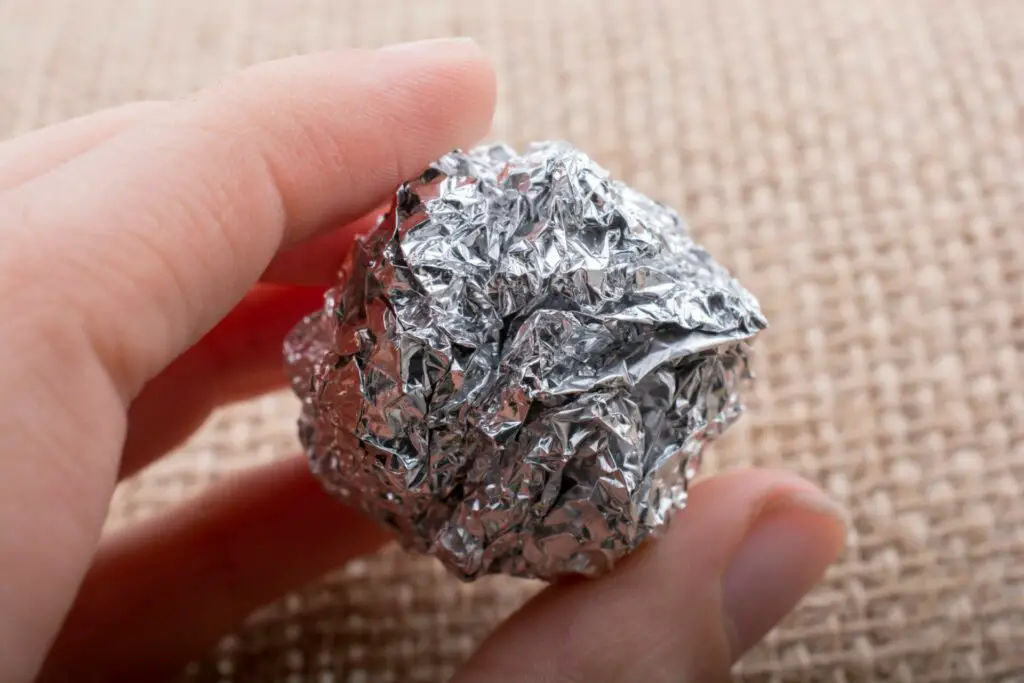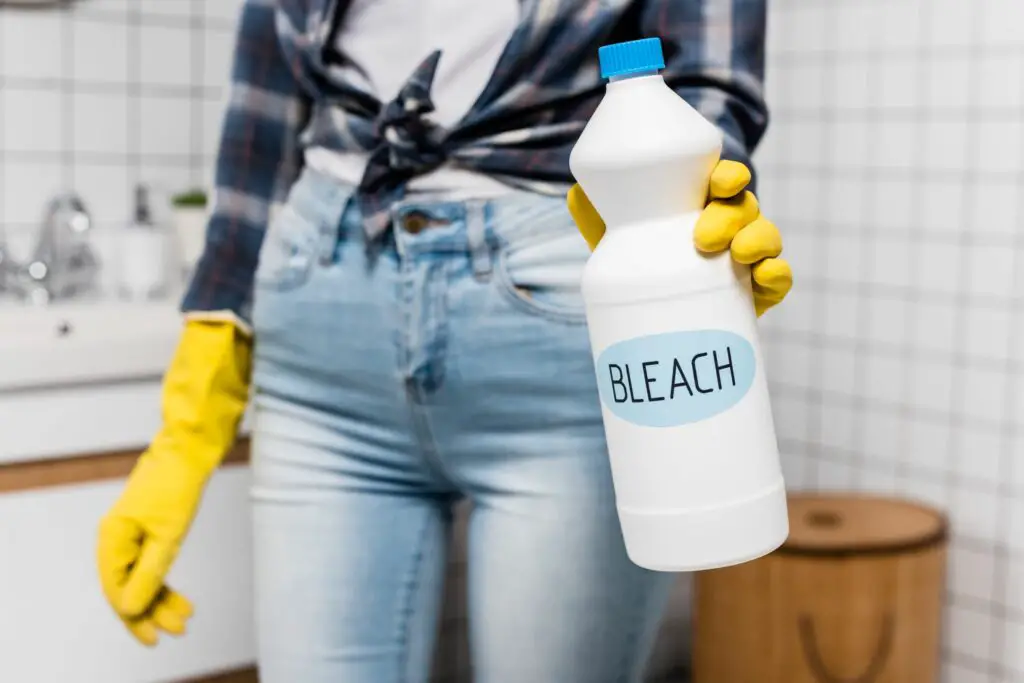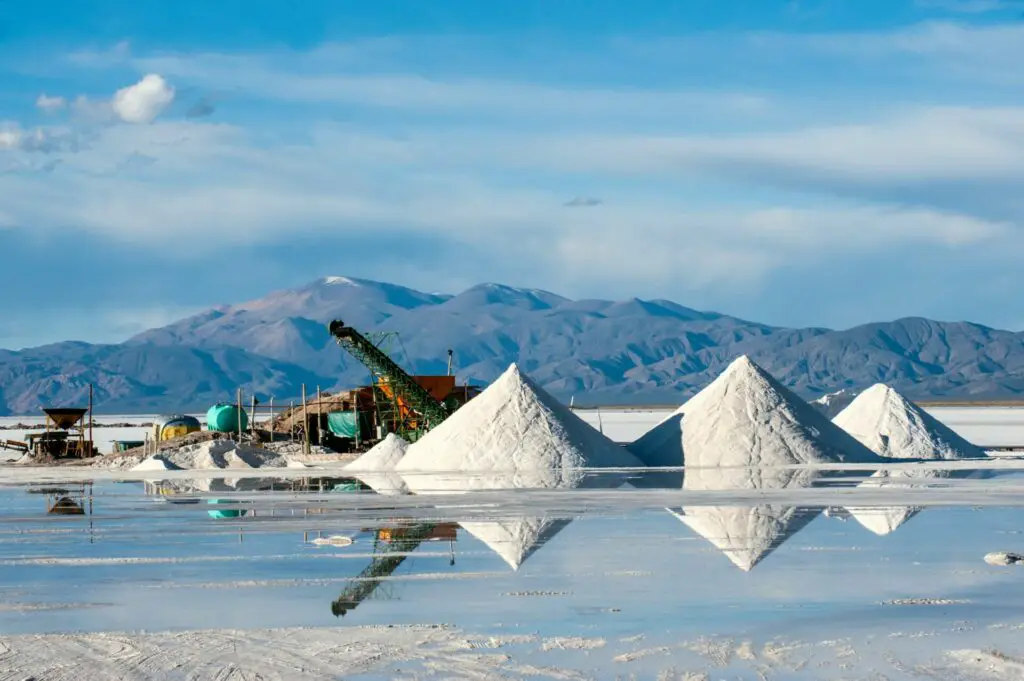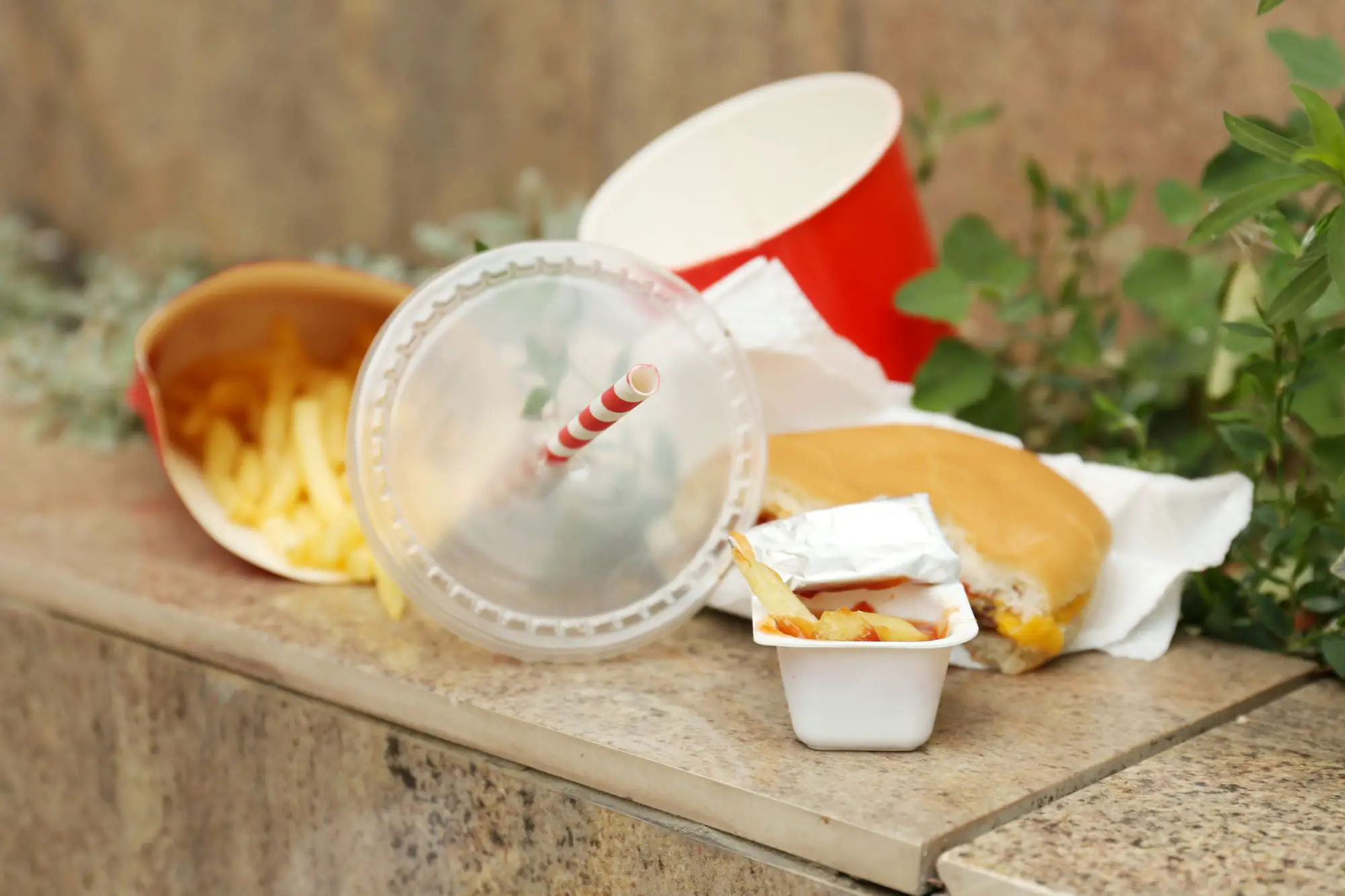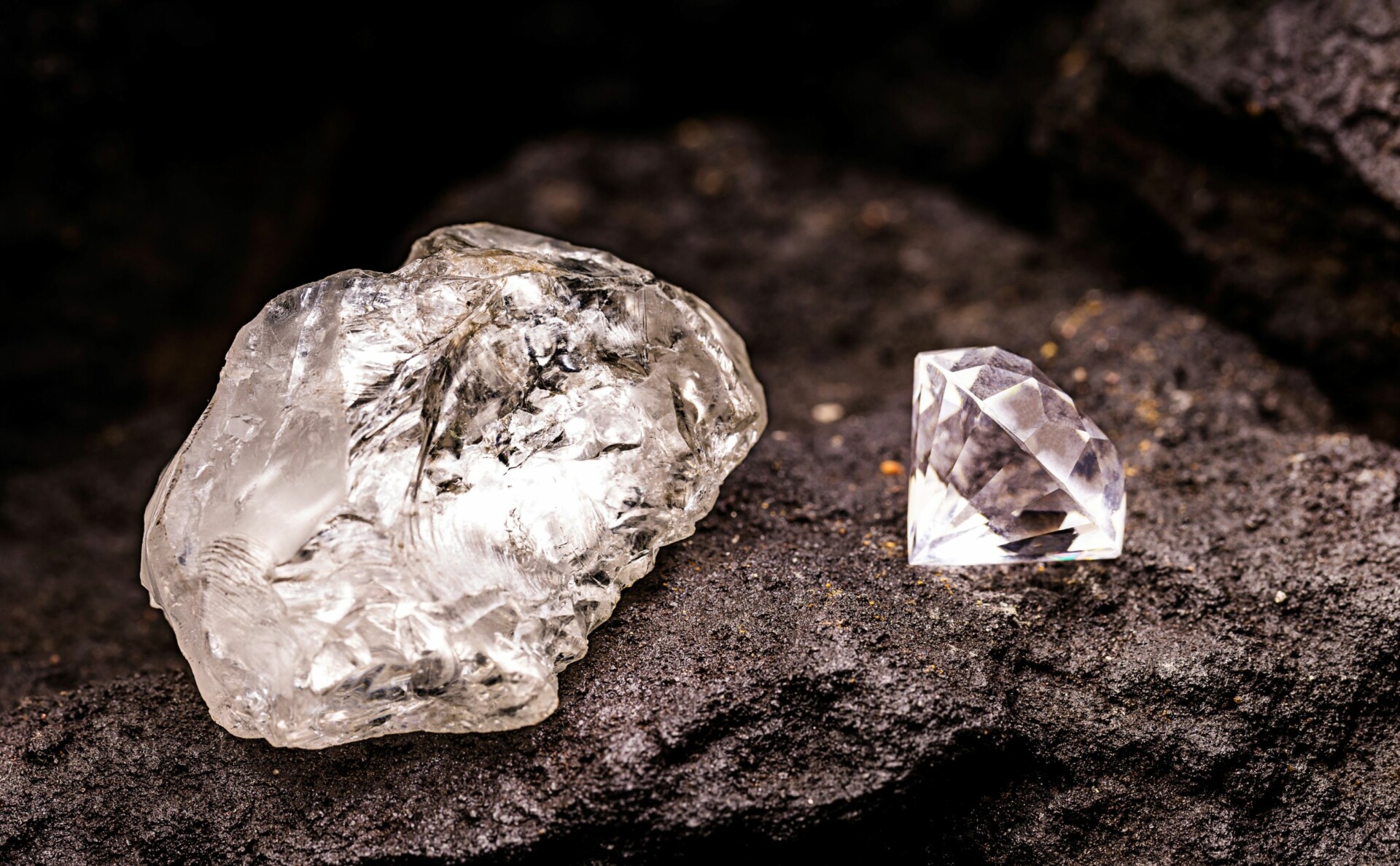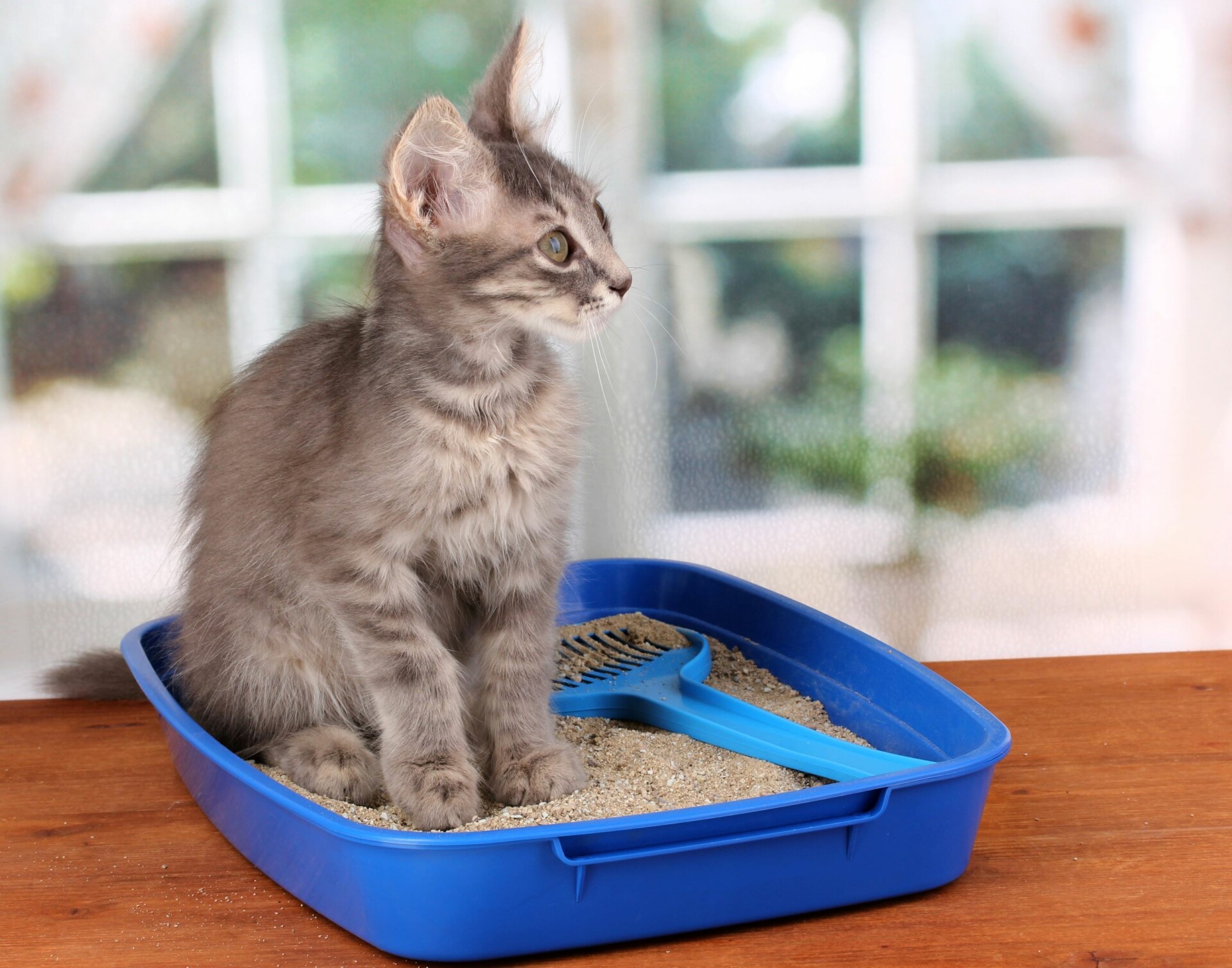Dishwasher tablets are easy and convenient to use, as you can just place one in the dishwasher and let the machine do the rest.
Some people even prefer using dishwasher tablets over dishwashing liquid and pods because they feel as if they get dishes cleaner.
But since the chemicals used in dishwasher tablets end up being drained from the dishwasher along with the water – eventually ending up in water systems and the environment – we must ask ourselves whether or not dishwasher tablets are eco-friendly.
Unfortunately, a lot of dishwasher tablets are not eco-friendly due to containing chemicals that can cause harm to the environment.
Some of the chemicals found in them have the potential to harm humans as well.
In this article, we’ll examine dishwasher tablets in more detail with regard to eco-friendliness and determine whether or not there are better options out there.
1. What Are Dishwasher Tablets Made Of?
Dishwasher tablets contain many chemical ingredients that are designed to clean your dishes by breaking down food and grease and adding shine as well.
These ingredients are a combination of surfactants, enzymes, and bleaches that work together with water to get your dishes clean.
Surfactants are chemicals that reduce the surface tension of liquids, allowing them to spread more.
In the case of dishwasher tablets, surfactants allow the water from the dishwasher as well as other cleaning agents to spread more easily for a deeper clean.
Examples of surfactants found in dishwasher tablets include stearates, such as magnesium stearate which is also found in many foods and cosmetic products.
Enzymes are protein-based chemicals that help to break down food and grease.
They can be natural or man-made, and one specific example of an enzyme found in dishwasher tablets are the protease and amylase enzymes.
Other chemical ingredients found in dishwasher tablets include:
- corrosion inhibitors
- preservatives
- binding agents such as citric acid
- solvents such as glycerin
- bleaching agents such as sodium percarbonate
- artificial dyes and fragrances
As you can see, lots of different chemicals make up dishwasher tablets and they all work together to make the cleaning properties effective.
But some of these chemicals are safer for the environment (and humans) than others.
2. Are Dishwasher Tablets Covered In Plastic?
Most dishwasher tablets are either individually wrapped in plastic packaging or covered in a plastic film that is water-soluble.
The water-soluble film is usually made from polyvinyl alcohol plastic film.
This type of film is designed to dissolve in water so that you don’t have to remove the film before placing the tablet in the dishwasher.
3. Are Dishwasher Tablets Eco-Friendly?
Dishwasher tablets are not eco-friendly for a couple of reasons.
Chemical Ingredients
The first reason is that some of the chemicals found in them can cause harm to the environment when they are released into the water and drained out of the dishwasher.
Ingredients such as citric acid and glycerin are thought to cause little harm to the environment.
However, surfactants can be slow to biodegrade or biodegrade into more toxic chemicals according to the Environmental Protection Agency (EPA).
The EPA also suggests that cleaning products containing nitrogen and phosphorus can negatively affect water quality.
This is important considering that the chemicals found in dishwasher tablets end up in water systems.
Artificial fragrances and perfumes used in cleaning products can also negatively affect air quality both indoors and outdoors.
This is because they contain volatile organic compounds, and volatile organic compounds are typically released as gases and have low water solubility.
It’s important to note that this is not an all-inclusive list of chemicals that are found in dishwasher tablets that negatively affect the environment.
But it should at least give you an idea of the chemicals found in them that can harm the environment.
Plastic
The second reason why dishwasher tablets are not eco-friendly is that they are wrapped in plastic.
Even if the plastic is soluble in water, it’s not eco-friendly since the plastic is created by refining crude oil.
Not only is crude oil a non-renewable resource, but collecting and refining it involves heavy manufacturing processes that have the potential to cause pollution and release greenhouse gases into the atmosphere.
Plus, even though a plastic film is water-soluble, it can still release some of the chemicals used to make it into water systems.
However, these chemicals can be removed from the water in areas with adequate water treatment facilities, so the main concern still comes with how the plastic film itself is made.
4. Are Dishwasher Tablets More Eco-Friendly Than Pods?
Dishwasher tablets are slightly worse than pods in terms of eco-friendliness, although the pods aren’t necessarily good for the environment themselves.
For starters, they are both wrapped in a water-soluble plastic film, which allows for the convenience of being able to just pop them in your dishwasher and let the machine do the rest although this plastic film is not eco-friendly.
However, dishwasher pods do contain fewer chemical ingredients than tablets do. This gives them a slight edge in terms of eco-friendliness, although they may not provide the same depth of cleaning that tablets do.
You also have to consider that dishwasher tablets are made out of compacted powder, so some of the ingredients used in them are to help the powder stay in a compacted form.
However, dishwasher pods still contain artificial fragrances and chemicals, which is why they still aren’t the most eco-friendly.
5. Are Dishwasher Tablets More Eco-Friendly Than Liquid?
As far as from a packaging standpoint, liquid dishwashing detergent is more eco-friendly than dishwasher tablets.
The reason is that although it is still packaged in a plastic container, the container can be recycled.
That means that liquid dish detergent is slightly more eco-friendly than pods as well.
Most liquid dish detergents also contain fewer chemicals than dishwasher tablets do, although they still contain ingredients such as bleaching agents and artificial fragrances.
However, depending on how much you use at a time, it’s possible that you’ll go through dishwashing liquid a lot slower than tablets or pods, so it can be eco-friendly in the sense that you’ll have to buy it less frequently and use less of it as well.
6. Are Dishwasher Tablets More Eco-Friendly Than Powder?
Powder dishwashing detergent is more eco-friendly than dishwasher tablets for a couple of reasons.
The first reason is that it is often packaged in cardboard, which can be recycled and is more sustainable than plastic is.
But, dishwashing powder also contains fewer ingredients that are potentially harmful to the environment.
In order to give it the powdery consistency, ingredients such as sodium citrate, sodium carbonate, and sodium sulfate are used, all of which pose little harm to the environment.
The only main ingredient in powder dishwashing detergent that is potentially harmful to the environment is sodium silicate, which can be toxic to aquatic organisms due to its high pH level.
There are a few other ingredients in dishwashing powder that are used in lower concentrations – such as artificial fragrances – that are potentially harmful to the environment.
But overall, the risk of environmental harm is much lower than it is with dishwasher tablets, and even pods and liquid detergent as well.
7. Do Dishwasher Tablets Contain Microplastic?
Microplastics are small pieces of plastic or microbeads that are found in many cleaning and cosmetic products, and they are thought to pose a threat to aquatic organisms as they make their way through drains and into the ocean.
It’s not uncommon for detergents such as dishwasher tablets to contain microplastic, especially since microplastics are used as a “scrubbing agent” to help remove dirt and debris from dishes and other surfaces.
With that being said, it’s safe to assume that a lot of dishwasher tablets do contain microplastics, although it varies depending on the brand of tablets so we can’t really say that all dishwasher tablets contain microplastics.
8. Are Dishwasher Tablets Sustainable?
Dishwasher tablets are not a sustainable product as long as they contain a lot of synthetic chemicals and are packaged in plastic.
We’ve already touched on the fact that the plastic used to wrap dishwasher tablets comes from crude oil, which is a non-renewable resource.
But, it’s not sustainable to create synthetic chemicals either, even if those chemicals are derived from natural sources.
Making synthetic chemicals involves using methods that are different than what nature uses to create chemicals.
Usually, these methods involve manufacturing processes that can contribute to lots of energy being used. The energy used for manufacturing processes usually comes from burning fossil fuels which are also non-renewable.
Plus, manufacturing processes can also cause greenhouse gas emissions as a result of burning fossil fuels, in addition to pollution if those chemicals were to get spilled into the environment.
It’s also important to consider that dishwasher tablets are a single-use product, and while there isn’t a type of dish cleaning product that can be used more than once, dishwasher tablets don’t go as far as products such as dishwashing liquid or powder do.
That means that more dishwasher tablets have to be produced as people buy them more often due to going through them more quickly.
9. Are Dishwasher Tablets Biological?
A lot of dishwasher tablets are somewhat biological due to containing enzymes. Enzymes are naturally occurring biological protein compounds that are designed to speed up chemical reactions.
A common enzyme that is used in industry – and dishwashing detergents – in particular, is amylase.
Even when amylase is synthesized and used in the manufacturing of products, it is often derived from plants, animals, or microorganisms that naturally produce or use the enzyme for certain processes such as food digestion.
But it’s important to remember that just because something contains biological ingredients, it doesn’t necessarily mean that it is eco-friendly or sustainable.
10. Are Dishwasher Tablets Toxic?
Some of the ingredients found in dishwashing tablets are potentially hazardous or toxic to humans.
For example, artificial fragrances can cause skin and respiratory irritation and damage, while some of the pigments used can cause cancer or damage to specific organs due to containing arsenic, lead, and mercury among other things.
But, these ingredients often won’t negatively affect humans as long as the tablets are used as intended.
Other ingredients, such as enzymes as well as citric acid, sodium silicate, sodium carbonate, and sodium bicarbonate pose little or no risk to the health of humans.
11. Are Dishwasher Tablets Biodegradable?
Although some ingredients in traditional dishwasher tablets are biodegradable and safe, there are others that can pose harm to the environment if they do biodegrade and some ingredients that are less biodegradable.
With that being said, it’s not a good idea to let dishwasher tablets biodegrade unless the packaging specifically says that they are biodegradable.
12. Are Dishwasher Tablets Compostable?
Composting is biodegradation that is human-controlled, so considering that a lot of dishwasher tablets aren’t 100% biodegradable, it’s not a good idea to compost them either.
Again, even though some ingredients are biodegradable and safe for compost, you don’t want to contaminate your compost with the ingredients that aren’t safe or biodegradable so it’s not a good idea to try to compost dishwasher tablets.
13. Are Dishwasher Tablets Safe for Septic Tanks?
Not all dishwasher tablets are safe for septic tanks due to the chemicals that are found in them.
Some ingredients found in detergents, such as phosphates, are bad for septic systems because they can kill the bacteria and enzymes found in septic systems that help to decompose waste.
Plus, the phosphates can also end up contaminating other bodies of water and depleting oxygen by promoting the growth of algae – this can kill fish and other aquatic organisms.
14. Are Dishwasher Tablets Vegan?
It’s hard to generalize whether all dishwasher tablets are vegan, as some brands may use animals to test some of the ingredients found in their product while others do not.
But if you want to be sure that you are buying dishwasher tablets that are vegan, look for products that are labeled as being vegan, with certified products being the best choice.
15. Are Dishwasher Tablets Flammable?
It’s possible that some of the ingredients contained in dishwasher tablets are flammable, especially considering that they contain artificial fragrances that are made up of volatile organic compounds (VOCs).
A lot of VOCs are flammable even in low concentrations. But even if some of the ingredients aren’t necessarily flammable, they do have the potential to release toxic fumes when burned.
16. Are Dishwasher Tablets Bad for Your Dishwasher?
One of the most likely problems to occur with your dishwasher due to using dishwasher tablets is detergent buildup.
However, this is true of any dish detergent, whether that be pods, tablets powder, or even liquid.
Detergent buildup usually happens as a result of using the product in the wrong way or using too much of the product for the amount of water that is used.
This results in the chemicals found in the detergents not dissolving properly and leaving behind residue.
The residue that gets left behind can clog up the drain and other mechanical components, causing your dishwasher to not drain or work at all. It can also result in your dishes not being as clean as they should be.
To prevent this, make sure you use the recommended amount of product on the packaging and that you add the product to the correct location in the dishwasher so that it gets properly dispensed.
2 Eco-Friendly Dishwasher Tablets Brands
Even though a lot of traditional and popular dishwasher tablet brands are not eco-friendly, there are some options out there that are eco-friendly and are just as effective at getting your dishes clean.
1. Blueland Dishwasher Tablets
Blueland Dishwasher Tablets are fragrance-free and plastic-free, including in their packaging, as they are not wrapped in plastic film.
These dishwasher tablets are also made with no petroleum and no artificial dyes, and the packaging they come in is compostable as well.
2. Cleancult Dishwasher Tablets
Cleancult Dishwasher Tablets are made with 100% biodegradable ingredients and despite being wrapped in a water-soluble plastic film, the tablets themselves are plastic-free.
They are also vegan and cruelty-free as well as packaged in a recyclable box.
3 Eco-Friendly Alternatives to Dishwasher Tablets
In addition to eco-friendly dishwasher tablets, there are other eco-friendly alternatives to traditional dishwasher tablets in the form pods, liquid, or even homemade versions.
1. Homemade Dishwasher Tablets
If you don’t want to have to buy dishwasher tablets, you can also make your own at home.
That way, you know what ingredients are in them and you can eliminate packaging altogether.
Homemade dishwasher tablets can be made with ingredients such as washing soda, Borax, and citric acid, among others, as well as fragranced with plant-based essential oils.
A quick Internet search will provide plenty of recipes you can try.
2. Dropps Dishwasher Detergent Pods
Dropps Dishwasher Detergent Pods are free of dyes, phosphates, and chlorine, and they are made from plant and mineral-based ingredients.
These detergent pods are also vegan and cruelty-free and they can be purchased in a scented or unscented version as well.
3. Seventh Generation Dish Detergents
Seventh Generation offers a wide range of dish detergents, from liquid to pods to powder, all of which are made with plant-based ingredients.
The dish liquids are USDA Certified Bio-Based, containing 95% biological ingredients. Some of their detergents may contain artificial fragrances, but they also have free and clear versions that don’t contain any artificial fragrances or dyes.
Conclusion
Dishwasher tablets are not an eco-friendly product because they contain many chemicals that can cause harm to the environment when they get into the water supply.
They also aren’t biodegradable or compostable, and many of them contain microplastics in addition to being wrapped in a plastic film as well.
If you want to be more eco-friendly with how you clean your dishes, there are versions of dishwasher tablets that are better for the environment.
Or, you can make your own tablets at home or use eco-friendly dishwashing pods or liquid as well.
You Might Also Like…
- Is Fast Food Bad for the Environment? (& What You Can Do)
- Is Fabric Softener Bad for the Environment? (+5 Eco-Friendly Options)
- Is Fuel Dumping Bad for the Environment? (& How Often It Happens)
- Is Electricity Generation Bad for the Environment? (What You Should Know)
- Is Dry Cleaning Bad for the Environment? (4 Surprising Facts)
- Is Diamond Mining Bad for the Environment? (Important Facts)
- Is DEET Bad for the Environment? 4 Effects (You Should Know)
- Is Cat Litter Bad for the Environment? (5 Common Questions)
- Is Burning Cardboard Bad for the Environment? (6 Facts)
- Is Burning Paper Bad for the Environment? (6 Surprising Facts)
- Is Burning Leaves Bad for the Environment? (7 Quick Facts)
- 4 Natural Cleaners for Quartz Countertops
- 6 Eco-Friendly Acrylic Paint Brands (For Sustainable Artists)
- 5 Eco-friendly Alternatives to Acrylic Paint (& How to Make Them)
- Is Acrylic Paint Bad for the Environment? (7 Quick Facts)
- Is Acrylic Yarn Bad for the Environment? 8 Crucial Facts
- Is Acrylic Bad for the Environment? (8 Quick Facts)
- Is Aluminum Foil Bad for the Environment? 7 Quick Facts
- Is Bleach Bad for the Environment? 6 Crucial Facts
- Is Lithium Mining Bad for the Environment? 6 Crucial Facts

